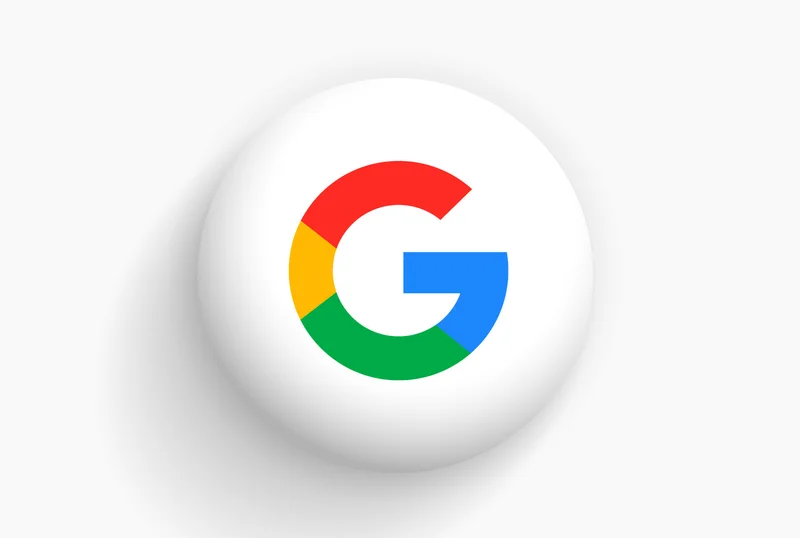Google's EU "Fix" is a Paper Tiger – Here's Why GOOGL Stock Still Isn't Safe
Okay, so Alphabet's trying to appease the EU again. Shares of Alphabet (GOOGL) took a hit recently as the tech giant responded to the European Union’s $3.4 billion fine, stating it won’t divest its online advertising business. Instead, they’re proposing some "tweaks" to their AdTech business. It's like putting a band-aid on a broken leg, and investors are right to be skeptical. Alphabet Rejects EU’s AdTech Breakup, Offers Changes; GOOGL Stock Falls
The Illusion of Choice
Google is suggesting publishers and advertisers can set different minimum prices for different bidders using Google Ad Manager. They're also claiming to increase interoperability. On the surface, it sounds like they're giving more power to publishers and advertisers. But let’s be real: Google still controls the pipes. They own the ad exchange (AdX), the ad server (Google Ad Manager), and a significant portion of the demand-side platforms (DSPs). This isn't about choice; it’s about the illusion of choice. The real problem lies in the fundamental conflict of interest that Teresa Ribera, the EU’s competition chief, pointed out months ago.
How do you solve a conflict of interest when the conflicted party is in charge of defining the solution? I'm not holding my breath.
The market seems to agree. Even with a "Strong Buy" consensus rating from analysts and an average GOOGL price target implying a 12% upswing potential, the stock is still facing headwinds. This tells me that while analysts see potential, the regulatory risk is a significant overhang. It’s not just about the current fine; it’s about the potential for future interventions and the constant scrutiny Google faces in Europe.
Pelosi's Portfolio and the Political Discount
Speaking of risk, it's interesting to note that Nancy Pelosi (or rather, her husband) is still holding onto Alphabet (GOOGL) stock, along with Nvidia (NVDA) and Broadcom (AVGO). Alphabet comprises 15% of her holdings, with gains exceeding 42% on recent trades. Now, I'm not going to wade into the insider trading allegations—those are for others to debate. But the fact remains that Pelosi’s investment strategy has outperformed the S&P 500 by a wide margin (595% since mid-2014). That says something about her (or her husband's) risk tolerance and access to information. Nancy Pelosi Is Retiring up 595%, but She’s Still Holding on to These 3 Stocks

And this is the part of the report that I find genuinely puzzling. Why maintain a large position in a company facing such persistent regulatory challenges? Is it simply diversification, or is there a deeper understanding of Google's ability to navigate these issues?
Let's consider the downside. The European Commission is initiating formal proceedings "to assess whether Google applies fair, reasonable, and nondiscriminatory conditions of access to publishers' websites on Google Search." They could fine Alphabet up to 10% of its total worldwide turnover—potentially $77.1 billion, based on last year's revenue of $385.5 billion. Of course, the E.C. might take the next 12 months to make up its mind.
Even if they don't levy the maximum fine, the constant threat of regulatory action creates a "political discount" on the stock. It's a drag on valuation that other tech companies, particularly those with less exposure to EU antitrust scrutiny, don't face.
AI Hype vs. Regulatory Reality
Google is also pushing hard into AI, with new shopping features in Search and Gemini. They're rolling out conversational shopping in "AI Mode" and store-calling via Duplex + Gemini. The idea is to deepen Google's data on shopping intent and increase ad effectiveness. But here's the rub: these AI features are also raising privacy concerns. A class-action lawsuit alleges that Google secretly activated Gemini for all users of Gmail, Google Chat, and Google Meet in October, using the assistant to monitor and collect private communications to train AI models.
It's a classic "innovate first, ask questions later" approach. And while the market might initially reward the AI hype, the long-term consequences of these privacy violations could be significant. Damages, settlements, and additional regulatory investigations are all on the table. The lawsuit accuses Google of unlawful tracking and data exploitation.
The AI push isn't necessarily a bad thing – it could be a long-term tailwind for the stock. However, these privacy issues add to the narrative that regulatory and legal headwinds are now a structural part of the Google investment story.
Google's "Fix" is Just a Delaying Tactic
Alphabet's proposed changes to appease the EU are unlikely to resolve the fundamental conflicts of interest within its AdTech business. The regulatory and legal headwinds, combined with privacy concerns surrounding its AI initiatives, create a persistent drag on the stock. The market's tepid reaction to Google's "fix" suggests that investors aren't buying it. It's a delaying tactic, not a solution, and GOOGL stock remains a risky bet, even with analysts' optimistic price targets.
